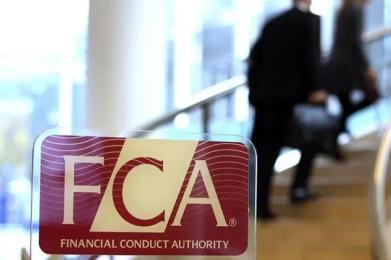You can question if the Financial Conduct Authority’s (FCA) regulation of your company is required as a business owner. The answer is that it is highly beneficial. In this piece, we’ll discuss the advantages of FCA regulation and how it may assist your business.
What is FCA?
The Financial Conduct Authority (FCA) regulates financial institutions in the United Kingdom, including banks, insurance companies, and investment firms. The FCA’s role is to ensure that these institutions operate honestly and transparently while protecting clients from financial harm.

Why Should Businesses be Regulated by FCA?
Being subject to FCA regulation is advantageous for firms for a number of reasons, including:
Credibility and Trust
Having FCA regulations lends confidence and trust to your company. It shows that you are dedicated to safeguarding your consumers and that you take financial rules seriously. Customers and investors that value openness and ethical corporate conduct may be attracted by this.
Compliance with Regulations
To protect consumers from financial harm, the FCA has imposed stringent regulations. To be regulated by the FCA, your firm must adhere to these guidelines, which ensure that you do business fairly and honestly. This may assist you in avoiding any legal troubles or penalties that may occur as a result of noncompliance.
Enhanced Consumer Protection
Consumers are protected against financial damage by the FCA laws. Your company must meet these conditions in order to be regulated by the FCA. You may be able to safeguard your clients from financial dangers such as fraud and unethical business practices by doing so.
Access to Funding
Your company may find it simpler to get capital if you are subject to FCA regulation. Many financial institutions demand that companies be subject to FCA regulation before they would even consider lending money. You may show prospective lenders that you are a reliable and respectable company by becoming regulated.
Competitive Advantage
Being subject to FCA regulation may provide your company with a competitive edge. It might help set your company apart from rivals that operate without regulations and show clients that you value their financial stability.
How to become regulated by FCA?
Your organization must submit an application to be subject to FCA regulation. Your firm must meet a variety of requirements, and the application process may be difficult and time-consuming.
The application procedure includes filling out an application form, submitting supporting documents such as financial statements, and showing that your company complies with FCA requirements. FCA will assess your application once you submit it and may seek more information or clarification.
It is important to remember that FCA regulation is a continuous process. Your firm must adhere to FCA standards on an ongoing basis, and FCA may conduct audits and inspections to guarantee compliance.
How does the FCA regulate a forex broker?
1. Safety of Client Funds:
FCA requires investment companies(including forex brokers) to open segregated accounts for their client funds; from this point, the client funds are protected.
The FCA handbook details are as follow
A firm, on receiving any client money, must promptly place this money into one or more accounts opened with any of the following:
(1) a central bank;
(2) a CRD credit institution;
(3) a bank authorised in a third country;
(4) a qualifying money market fund.
2. Requirement on Forex Brokers’ Reports:
Annual accoounts and reports; Annual controllers reporting; Client asset reports; Client money and assets reporting; Market data reporting; Product sales data reporting; Remuneration data reporting; Reporting complaints; Transaction reporting.
Conclusion
Having FCA regulation is quite advantageous for firms. It may assure compliance with rules, safeguard customers, boost reputation and confidence, enable access to capital, and give a competitive edge. Regulated status, however, requires continuing compliance and is a difficult procedure. To make sure you satisfy all regulatory criteria, it’s crucial to obtain expert guidance if you’re thinking of applying to be regulated by the FCA.
